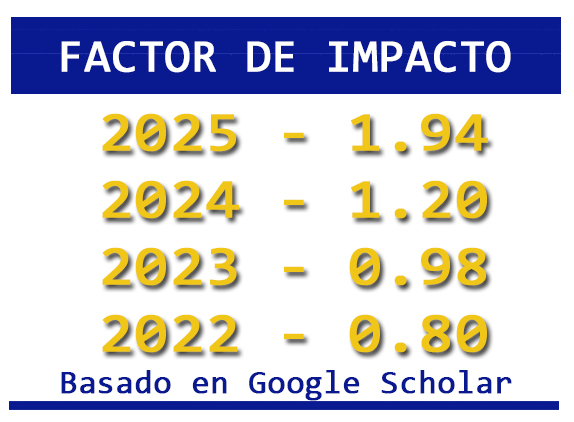COMPUTATIONAL THINKING AND ADAPTIVE LEARNING IN PROBLEM-SOLVING WITH FRACTIONS
DOI:
https://doi.org/10.36790/epistemus.v15i30.171Keywords:
adaptive learning, computational thinking, fraction learningAbstract
This research is aimed to identify the modalities of computational thinking in problem-solving with fractions, as well as to explore the role of adaptive learning in this learning task in children of elementary school. The research design is a case study. A group of students using a mobile application based on adaptive learning, developed to carry out the tests, solving problems with fractions. The results show that the modalities of computational thinking present in the test are trial and error, iteration, and recursion, with a prevalence of recursion. At the same time, the adaptation of the problems with fractions by the mobile application according to the individual capacities of the children indicates the benefits that this type of technology has for learning fractions.
Downloads
References
INE, “La educación obligatoria en México”. Instituto Nacional para la Evaluación de la Educación, Ciudad de México, Informe 2019, 2019.
PLANEA, “Evaluación interna 6° grado de educación primaria. Descriptores de niveles de logro”, Secretaría de Educación Pública, México, 2020.
E. Reséndiz y CA. González, “Enseñanza de fracciones en tercer grado de primaria: análisis del discurso y prácticas pedagógicas”, Revista Internacional de Ciencias Sociales y Humanidades, SOCIOTAM, vol. XXVIII, no.1, pp.109-138, enero-junio 2018.
N. Hansen, N. Jordan y J. Rodrigues, “Identifying learning difficulties in fractions: a longitudinal study of student growth from third through sixth grade”, Contemporary Educational Psychology, vol. 50, pp. 45-59, july 2017, doi.org/10.1016/j.cedpsych.2015.11.002
M.N. Istiqomah y S. Prabawanto, “The difficulties of fifth grade students in solving mathematic fractions word problems”, Journal Basic Of Education, vol.03, no.02, pp. 152-160, june 2019,
doi:10.24269/ajbe.v3i2.1835
Secretaría de Educación Pública, Desafíos matemáticos. Cuarto grado. Ciclo escolar 2020-2021, México: SEP, 2020.
M.E. Sánchez, “El desarrollo del pensamiento abstracto en Educación Primaria mediante el uso de la Realidad Aumentada como recurso didáctico”, M.E y TIC. tesis, Universitat Oberta de Catalunya, Membrilla, Ciudad Real, España, 2021, http://hdl.handle.net/10609/133487
C. A. Barbieri, J, Rodrigues, N. Dyson, N.C. Jordan, “Improving fraction understanding in sixth graders with mathematics difficulties: Effects of a number line approach combined with cognitive learning strategies”, Journal of Educational Psychology, vol.112, no.3, pp. 628–648, june 2020, doi.org/10.1037/edu0000384
M. Zapata-Ros, “Pensamiento computacional: Una nueva alfabetización digital”, Revista de Educación a Distancia (RED), no.46, pp. 1-47, septiembre 2015, https://doi:10.6018/red/46/4
J. Sjaastad y C. Tømte, “Adaptive Learning Systems in Mathematics Classrooms”, en Education Research Highlights in Mathematics, Science and Technology. Iowa: ISRES, 2018, pp. 30–46.
M. Guzdial, A. Kay, C. Norris y E. Soloway, “Computational thinking should just be good thinking”, Communications of the ACM, vol. 62, no. 11, pp. 28-30, november 2019,
doi.org/10.1145/3363181
J. L. Zapotecatl, Introducción al pensamiento computacional: conceptos básicos para todos. México: Academia Mexicana de Computación, 2018.
Kinshuk. (2016). Design adaptative and personalized learning environments. Londres: Routledge.
C. López y L.P. Bedolla, “El aprendizaje adaptativo para la regularización académica de estudiantes de nuevo ingreso: la experiencia en un curso remedial de matemáticas”, Edutec. Revista Electrónica De Tecnología Educativa, no.74, pp. 206-220, diciembre 2020,
doi.org/10.21556/edutec.2020.74.1627
J.C. Levy, Adaptive Learning and the Human Condition. New Jersey: Pearson, 2013.
S. Papert, La máquina de los niños: replantearse la educación en la era de los ordenadores. Barcelona: Paidós Ibérica, 2003
G. Marzano y V. Lubkina, “An adaptive learning model based on a machine learning approach. Information and Communication Technologies”, in Education- Conference on Mechatronics and Robotics, Dubai, February 2020.
A. Mavroudi, M. Giannakos y J. Krogstie, “Supporting adaptive learning pathways through the use of learning analytics: developments, challenges and future opportunities”, Interactive Learning Environments, vol.26, no.2, pp. 206-220 february 2017,
dx.doi.org/10.1080/10494820.2017.1292531
M. Liu, E McKelroy, S.B. Corliss y J. Carrigan, “Investigating the effect of an adaptive learning intervention on students’ learning”, Education Tech Research no. 65, pp.1605–1625, september 2017, doi.org/10.1007/s11423-017-9542-1
J. Fagerlund, P. Häkkinen, M. Vesisenaho y J. Viiri, Jouni, Computational thinking in programming with Scratch in primary schools: A systematic review, en Computer Applications in Engineering Education, Special Issue Article, pp. 2-28 may 2020, doi.org/10.1002/cae.22255
Downloads
Published
How to Cite
Issue
Section
License
Copyright (c) 2021 EPISTEMUS

This work is licensed under a Creative Commons Attribution-NonCommercial-NoDerivatives 4.0 International License.
The magazine acquires the patrimonial rights of the articles only for diffusion without any purpose of profit, without diminishing the own rights of authorship.
The authors are the legitimate owners of the intellectual property rights of their respective articles, and in such quality, by sending their texts they express their desire to collaborate with the Epistemus Magazine, published biannually by the University of Sonora.
Therefore, freely, voluntarily and free of charge, once accepted the article for publication, they give their rights to the University of Sonora for the University of Sonora to edit, publish, distribute and make available through intranets, Internet or CD said work, without any limitation of form or time, as long as it is non-profit and with the express obligation to respect and mention the credit that corresponds to the authors in any use that is made of it.
It is understood that this authorization is not an assignment or transmission of any of your economic rights in favor of the said institution. The University of Sonora guarantees the right to reproduce the contribution by any means in which you are the author, subject to the credit being granted corresponding to the original publication of the contribution in Epistemus.
Unless otherwise indicated, all the contents of the electronic edition are distributed under a license for use and Creative Commons — Attribution-NonCommercial-ShareAlike 4.0 International — (CC BY-NC-SA 4.0) You can consult here the informative version and the legal text of the license. This circumstance must be expressly stated in this way when necessary.
The names and email addresses entered in this journal will be used exclusively for the purposes established in it and will not be provided to third parties or for their use for other purposes.















